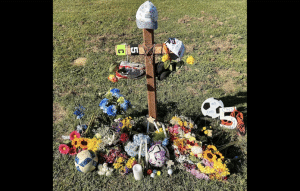More money for mental health?
Ahead of budget hearings taking place next week for the upcoming fiscal year that begins Dec. 1, the Monroe County Board of Commissioners heard a plea for continued support of local mental health services.
Human Support Services Executive Director Anne Riley updated commissioners on the organization’s current use of grant funding during Monday’s county board meeting.
While Riley said there is “ways to go” in converting to an “almost paper-free” electronic health records system, she said the use of county-provided funds is “revolutionizing” service management at HSS.
Riley also updated the county board on the use of $10,000 recently allocated toward further development of a criminal justice behavioral task force, an initiative which began in 2018.
In 2023, the task force provided three local pastors with “police chaplain training” to serve in conjunction with local law enforcement agencies.
Riley also described a new “co-response” initiative which provides pre-arrest referrals to HSS for subjects who are known or suspected of having mental health issues.
HSS has also been working with the Monroe County State’s Attorney’s Office to develop a mental health awareness campaign aimed at middle school students and teenagers.
“The $10,000 has really gone a long way for the task force,” Riley said.
She then moved to a discussion of “doing more with less” – especially since the COVID-19 pandemic.
She described the difficulty in recruiting and retaining licensed clinicians due to the higher pay and more flexible schedules found in other roles.
“They’re being recruited away from us consistently,” Riley said, adding that some employees have left after being offered nearly double the salary HSS can offer.
Part of the problem, Riley argued, is that new referrals, client numbers and services at HSS are increasing while funding by other organizations is either down or has been cut completely.
Riley said the United Way cut all funding to HSS in 2020 due to new guidelines which made several St. Louis-area counties, including Monroe County, ineligible.
Riley said the logic behind the funding cut is that “the need isn’t as great as in other communities” and “the county can take care of itself.”
Commissioner Vicki Koerber suggested elimination of funding is because there is not a significant “underprivileged and impoverished” demographic in this county.
“Monroe County is also always viewed as a ‘stand-alone wealth community,’” Koerber said, to which Commissioner Dennis Knobloch added, “But that doesn’t stop the problems.”
Riley agreed the perceived affluence of Monroe County has not stopped issues handled by HSS, particularly substance abuse problems.
Knobloch closed the discussion by saying the board will take an in-depth look at the county’s portion of HSS’s funding model during budget hearings next week.
Koerber also suggested Riley reach out to county municipalities such as Waterloo and Columbia to see if there is any available funding mechanism available through the city governments.
In other business, the board approved a resolution to allow a $40,000 project which will have Road District 5 complete a six-to-eight-inch raising of the county-maintained portion of Valmeyer Road in Columbia near its intersection with Bluff Road.
Monroe County Engineer Aaron Metzger explained the project will improve lines of sight at the intersection and will be done this year ahead of a planned bridge replacement on Bluff Road next summer near the intersection.
Koerber said the reconfiguration is a “proactive” move by the highway department to prevent possible accidents in the future.
The next meeting of the county board will be Monday, Sept. 25, beginning at 8:15 a.m. at the Monroe County Courthouse in Waterloo.






